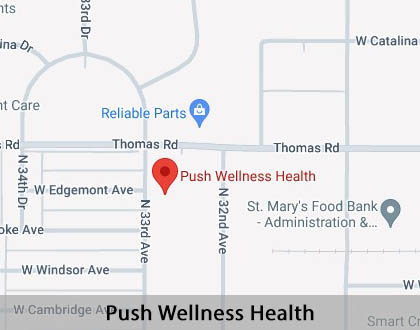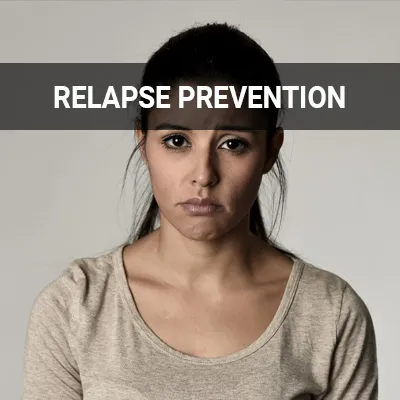Alcohol Addiction Treatment Phoenix, AZ
Alcohol addiction is a heavy reliance on alcohol and an inability to stop drinking even when drinking causes negative consequences. Also known as alcohol use disorder or alcohol dependence, alcohol addiction can cause changes in a person's brain that make it difficult to quit drinking without treatment. If not treated, alcohol addiction becomes worse over time and causes serious health problems. Our clinic provides services for children, adolescents, adults, and seniors. We have specialized clinicians experienced in working with each age group.
If you or someone you know has difficulty controlling when and how much they drink, there is help. Alcohol addiction treatment is available in Phoenix and the surrounding area. A therapist is trained and well-versed in helping manage alcohol addiction. Call (480) 737-4658 for more information or to schedule an appointment.
What is Alcohol Addiction
Alcohol addiction is a complex mental health condition that can range from mild to severe and tends to progress without treatment. Those struggling with an addiction to alcohol are dependent both physically and psychologically on the substance. They may consistently drink to the point of intoxication, have a preoccupation with alcohol, drink at inappropriate times, and even have withdrawal symptoms when they decrease or try to stop drinking. Tolerance is a key symptom of those with alcohol addiction. This means they continually need to drink more to get the desired effect and may be able to drink a significant amount without appearing to be intoxicated. They may crave a drink daily and need to consume a certain amount of alcohol to feel normal.
Just because a person drinks too much on occasion does not mean they have an alcohol addiction. Alcohol use disorder is a pattern of excessive drinking over an extended period of time in a way that harms a person's health, professional career, and social life. A person with an alcohol addiction may be unable to quit drinking even when they start to have health problems or difficulties managing their lives. When someone with alcohol dependence is not able to drink, they may become irritable, depressed, or unable to control their temper.
“Alcohol use disorder is a pattern of excessive drinking over an extended period of time, in a way that harms a person’s health, professional career, and social life.”
Dangers of Alcohol Addiction
Chances are, most people know someone affected by alcohol addiction, as it is a national epidemic. According to the Centers for Disease Control and Prevention (CDC), excessive alcohol use was responsible for over 140,000 deaths per year from the years 2015-2019 that is more than 380 deaths per day. The financial impact of alcohol misuse is in the billions when one considers costs incurred for alcohol-related law enforcement, health care expenditures, and lost workplace productivity.
The personal cost of alcohol addiction is significant. Those addicted to alcohol are more likely to have conflicts at home and with friends and have trouble at work. Those who cannot control their drinking put themselves at higher risk for legal problems as well as engaging in risky behavior. In addition to the psychological and social problems alcohol abuse causes, those with alcohol addiction are more likely to be in poor health and suffer life-threatening conditions such as liver disease, heart disease, and cancer.
“Those addicted to alcohol are more likely to have conflicts at home, with friends, and have trouble at work.”
Causes of Alcohol Addiction
The causes of alcohol addiction are complicated, with no exact formula for determining who will become addicted or not. The causes vary widely from person to person. Alcohol addiction may take a few years or decades to develop.
We do have a general idea of how alcohol addiction works in the brain. Alcohol is a central nervous system depressant that relaxes a person while releasing the feel-good brain chemical dopamine. This causes a person to associate alcohol with good feelings and want to drink more. After a period of consistent drinking, the levels of the brain chemicals change, leading a person to need to drink more and more to get the desired effect. The person develops a tolerance and then needs to drink a certain amount to feel normal.
Certain risk factors appear to make someone more likely to develop this disorder. Genetics and a family history of alcohol addiction are two of the biggest predictors of alcohol dependence. Other risk factors include:
- Being surrounded by friends and family who drink a lot
- Co-existing mental health problems
- Exposure to physical or emotional trauma
- Starting to drink at an early age
- Steady drinking on a regular basis
A high level of stress coupled with poor stress management skills is another significant risk factor.
“After a period of consistent drinking, the levels of the brain chemicals change, leading a person to need to drink more and more to get the desired effect.”
Check out what others are saying about our mental wellness services on Yelp: Alcohol Addiction Treatment in Phoenix, AZ
Alcohol Addiction Treatment
Because alcohol addiction comes in many forms with varying levels of severity, the treatment approach must be customized for each patient. Some patients will need a medically assisted detox for withdrawal symptoms. Treatment often involves medication to curb cravings in addition to therapy. A therapist will conduct an examination and discuss in length with the patient their history, current drinking habits, triggers, environment, and lifestyle. This information will assist us in developing an effective strategy to help the patient break free of their alcohol addiction.
Therapies for treating alcohol use disorders vary depending on the causes and motivations behind someone's drinking. Those with co-existing mental illnesses, such as anxiety and depression, will need to have those issues addressed. In addition, patients may need therapy to deal with any past trauma that may be contributing to their alcohol use. Much of the therapy focuses on changing the thought and behavior patterns behind addiction. We work to combat triggers behind cravings and help them develop healthier habits that do not involve drinking.
“Much of the therapy focuses on changing the thought and behavior patterns behind addiction.”
Questions Answered on This Page
Q. How harmful is alcohol addiction?
Q. What causes someone to become addicted to alcohol?
Q. How is alcohol addiction treated?
Q. Can alcohol addiction be cured?
People Also Ask
Ongoing Support
Alcohol addiction is not something that can be "cured" in a set amount of time. Often people need ongoing support after their initial treatment period to prevent relapse. Ongoing therapy is important for those who have underlying psychological issues that contribute to their drinking. Developing new hobbies to fill the space alcohol used to take in one's life is an important defense against relapse.
There are dozens of support groups for those recovering from alcohol addiction, including the well-known 12-step programs. It is also important to develop healthy exercise and diet habits to strengthen one's health as well as develop a solid social support system. With treatment and continued support, people can conquer alcohol addiction and get back to living fulfilling lives.
“Often people need ongoing support after their initial treatment period to prevent relapse.”
Frequently Asked Questions
Q. How much drinking is considered addictive alcohol use?
A. There is no simple answer to this question. Any drinking that disrupts your life or harms your health needs to be addressed. What is considered too much drinking can vary between people. The Centers for Disease Control and Prevention defines heavy drinking as eight or more alcoholic drinks per week for women and 15 or more drinks a week for men. However, not all heavy drinkers are considered alcohol dependent. At the same time, even moderate drinking, for some, can negatively impact one's health. If you suspect you or a loved one is struggling with drinking, it is important to talk to someone about it.
Q. Do I have to stop drinking forever?
A. Current science holds that once a person has developed alcohol use disorder, abstinence is their best option for regaining their health and well-being. There are those who engage in unhealthy drinking who can learn to moderate or cut their drinking back to a healthy level. However, this does not tend to be the case with alcohol addiction. Those with the disorder often find it impossible to stick to the drinking limits they try to set for themselves.
Q. What medications are available to help treat alcohol use disorder?
A. The FDA has approved three medications for use in treating alcohol addiction. Disulfiram, known by the brand name Antabuse®, is one of the oldest medications used to treat alcohol addiction. This drug causes unpleasant symptoms such as sweating, headaches, and nausea when one consumes alcohol while on the drug. Naltrexone, another drug used against alcohol addiction, works by blocking the effects of alcohol and reducing cravings. Acamprosate is a medication that can ease alcohol withdrawal symptoms, including anxiety. Not every person who has alcohol addiction will respond to medication, and may only be one part of a treatment plan.
Q. Should I quit alcohol cold-turkey or wean myself off it?
A. This is something you would discuss with a medical professional after examining your case. Alcohol withdrawal symptoms can range from minor annoyances to severe and life-threatening. Withdrawal symptoms will depend on several factors, including how much and how often one drinks as well as how long one has been drinking. We can help you find an approach to quitting that is both safe and effective for you.
Q. What is alcohol withdrawal like?
A. Symptoms vary from patient to patient in number and intensity. Mild symptoms include anxiety, tremors, headaches, nausea, vomiting, and sweating. More severe symptoms include racing heart, high blood pressure, fever, and seizures. Five percent of those with alcohol addiction develop severe symptoms called delirium tremens or DTs, where someone experiences visual and auditory hallucinations and delusions, among other symptoms.
Start Feeling Better – Visit Us Today
By visiting us as soon as possible, our team can help get you the professional treatment you need. Instead of waiting around and allowing the symptoms to get worse, we can provide you with treatment options.
Definitions
Call Us Today
Alcohol addiction does not have to derail your life. If you are worried you have a drinking problem, recovery is possible, and we can help. Call us now at 480-737-4658 to learn more and schedule an appointment.
Helpful Related Links
- American Psychiatric Association (APA). American Psychiatric Association (APA). 2024
About our business and website security
- Push Wellness Health was established in 2022.
- We accept the following payment methods: American Express, Check, Discover, MasterCard, and Visa
- We serve patients from the following counties: Maricopa County
- We serve patients from the following cities: Phoenix, Tolleson, Sun City, Paradise Valley, Gilbert, Chandler, Tempe, Mesa, Queen Creek, Scottsdale, and Glendale
- Norton Safe Web. View Details
- Trend Micro Site Safety Center. View Details
Back to top of Alcohol Addiction Treatment










